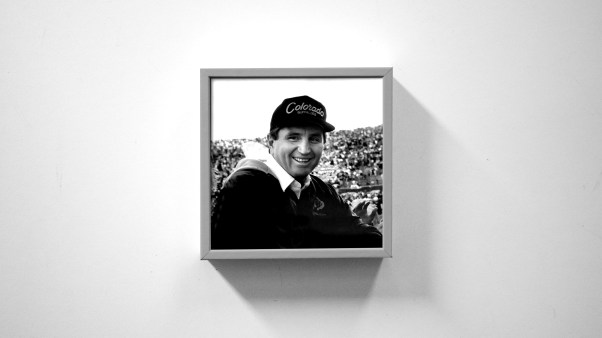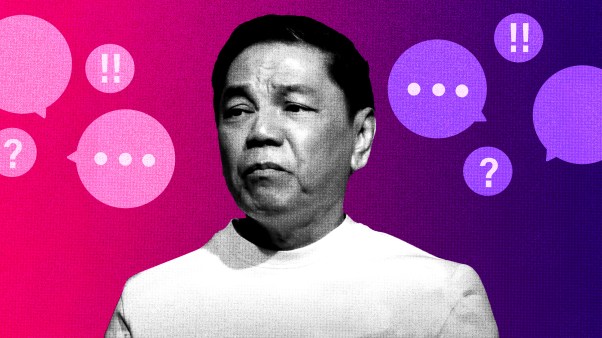On the surface, it seems that the university is slowly but surely getting religion. New courses on religion and politics, development, and culture are popping up here and there. Newly proposed programs and institutes in Islamic and Jewish studies are generating faculty discussion. Top university presses are expanding the number of titles they publish on religion. Everywhere one turns, there seems to be a newly funded initiative for scientific research on forgiveness, spiritual progress, public religion, or some such topic. Publishing journal authors who once ignored religion are now entering religion variables in their regression models and often finding significant results. It seems as if there are a few more new jobs in the sociology of religion at decent schools than there used to be. And, in my own experience, senior colleagues are no longer suggesting to me that I should study in a higher-status field than the sociology of religion. Maybe the overtly anti-religious culture that dominated the American university since the late 19th century is slowly but surely dissipating, lo these so many years after the philosophical discrediting of logical positivism. At one level, it appears to be.
Then again, I have found that, just below the surface of this apparent ever-widening openness to and interest in things religious in the academy, there abides a tenacious anti-religious sensibility among many faculty that is, for me, both amusing and wearying. Here I recount only a few examples from my experience lately.
A fellow academic from another department, who had recently attended an explicitly religious wedding service for a mutual acquaintance, stopped me in the hallway to vent his astonishment that some of our colleagues who had also attended the wedding revealed in the way they had participated that they might actually believe in God and heaven. “Here are these well-educated people,” he marveled, eyes rolling, “who actually are sitting there talking about ‘Lord this, and Lord that,’ and singing hymns about heaven and ‘up there’! Can you believe that?!” This person knows that I am a churchgoing Anglican with interests in religion and theology. Thinking that I must be missing a nuance that would explain this interchange in a way that would not be insulting to me, I mumbled something about the believability of such things being rooted in narratives that are not directly empirically verifiable but that can make perfect sense to people who embrace the stories. By the time I fully realized what was actually going on, he too seemed to be catching on; he started to backpedal by saying that he guessed he was really only emotionally reacting against the religious practices in which he had been forced to engage in public school as a child. Okay, I said. Whatever.
In a recent small meeting of interdisciplinary faculty convened to evaluate a particular piece of scholarship on schools and education, the discussion turned to the lamentable activism of “the Christians” who were promoting an abstinence curriculum for local middle-school sex education. (This, of course, violated the 12-year-olds’ inherent right to fully explore and express their blossoming sexual desires.). I suggested that, to be precise, we should not really be talking about “the Christians” categorically, but rather a fairly small group of local, politically active Christians. The others conceded the obvious point, and then immediately proceeded to cheerfully note the good news that they had recently heard: “All of the Christians recently left the district schools after losing the sex education struggle, and went into home schooling.” Was it really worth it, I wondered, to point out that the 30 to 60 percent of district resident families who must be Christian could not possibly have left the public schools in the last year? That probably no more than a handful of families had actually recently begun home-schooling because of frustrations with local sex-education policies? Nah. Why even try? Getting them to distinguish between Pat Robertson and “the Christians” seemed hopeless.
Instead, I tried to point out the intellectual incoherence of the piece of scholarship we were evaluating, which advocated a libertine ethic of unlimited sexual freedom for 12-year-old boys and girls. How would this square with the piece’s feminist imperative to protect girls from the exploits of sexually predatory boys? Do we really want to give boys full freedom to pursue any and all of their sexual desires? But that suggestion didn’t go anywhere either.
Recently, in the lobby of my building, I ran into an academic acquaintance from the West Coast. Although I was in a rush to get somewhere, she had to tell me about her Jewish boyfriend, who, looking to earn a few extra dollars teaching a sabbatical-replacement class, had recently interviewed at a local Christian liberal arts college. Apparently, the dean of the college had nervously reminded her boyfriend before he signed the contract that his was a Christian school. Puzzled as to how Christianity could possibly make any difference in college education, the boyfriend asked what exactly that meant. The dean, my storytelling colleague related with scorn (however accurately, I do not know), replied that this meant that there was no smoking on campus and students should not cheat. How stupid, she laughed, to think that Christianity might affect higher education in any way, and to imply that all non-Christians were running around the world smoking and cheating. The Moron. But, oh, she was late and had to run. Goodbye.
And then there was the occasion, not long ago, when I found myself part of an informal discussion of faculty evaluating the merits of a professional talk we had all heard. The talk had included a significant religious analysis, which sought to explain some of the variance in a particular outcome with a religious explanatory variable. In other words, religion matters in shaping human action. But not all of the faculty in the discussion were satisfied, and to some degree for legitimate reasons, in my view. After a slight pause in the discussion, however, one colleague disclosed what he took to be an enlightening fact about the presenter of the talk: “In an earlier discussion with this person, I discovered that he himself was personally raised to be religious.” Then silence. Yeah, so?, I thought. (I can be a little slow.) Then I realized the point: because the presenter had a personal religious history, he was probably biased in his interest in religion and perhaps in his analysis of religious effects, and so their research and findings were suspect. The discussion moved on. Afterward, I emailed the faculty member who made this comment. I asked whether, if a personal religious identity had this biasing effect, having a given social-class location, gender identity, or racial or ethnic heritage would likewise inevitably make suspect a scholar’s research on social inequality, sex and gender, or race and ethnic relations. To this question I received no reply.
Life in the university goes on. And in the academy, particularistic identities are often what authenticate scholars’ authority and insight in research. Who but a woman or African American, after all, could understand the reality of women or African Americans? Except for a religious identity, which is uniquely suspect for providing not insight or understanding, but bias and questionable findings.
There are many more similar stories to be told—they are a dime a dozen, in fact. But these suffice to remind us that anti-religion is still alive and well among the university professoriate. Particularly anti-Christianity, which disdains a faith neither exotic nor “subaltern” enough to merit the admiration of intellectuals.
Such anti-religion in American higher education was launched in full force in the late 19th and early 20th centuries by confident apostles of secularization who sought to popularize the doctrines of positivism, epistemological foundationalism, and scientific objectivity. Of course, each of these perspectives has been thoroughly dissected for decades now by all manner of philosophers, historians, theologians, and social theorists. The corpse of logical positivism is badly decomposed, but its ghost still haunts the halls and classrooms of the academy. Some kind of emotional and political energy seems to keep this anti-religious spirit alive among many university faculty, despite the fact that the key intellectual assumptions that once legitimated it are now largely discredited.
Perhaps, I have been thinking lately, it might help to consider the academy’s anti-religious spirit as a case of what the late, renowned French sociologist Pierre Bourdieu called habitus. Seeking to explain a cultural dynamic that mediates between the objective and the subjective, between social structures and lived practices, Bourdieu somewhat opaquely described habitus as “a system of durable, transposable dispositions, … principles which generate and organize practices and representations that can be objectively adapted to their outcomes without presupposing a conscious aiming at ends or an express mastery of the operations necessary in order to obtain them.” Habitus, in other words, involves persistent and deeply internalized mental schemes that correspond to and reinforce particular social conditions, and that operate often prereflectively through human actors. Bourdieu’s jargon aside, the idea of habitus can help to conceptualize and name the reality of pervasive, durable, habitual, prereflective, master mental schemes that culturally reproduce themselves, and the larger social conditions to which they correspond, through actors who may not be fully conscious about the process.
In particular, the notion of habitus helps to explain some curious features of academic anti-religion. One is that none of the anti-religious faculty I know as individuals are nasty people out to make religious believers feel bad. They’re smart, interesting, morally serious, and well-intentioned. I prize my relationships with them. They’re not aiming to be anti-religious, anti-Christian. They don’t have to try. It just comes naturally to them, almost automatically, as if from a fundamental predisposition. Nor can their attitude be explained simply as evidence of “hardened hearts,” for outside the academy, even among people who have little use for Christianity such disdain for religious faith is noticeably less common and intense. But with the idea of habitus in mind, we can see that in their anti-religion, these faculty are expressing a deeply interiorized mental scheme that is more prereflective than conscious, more conventional than intentional—yet one that has an immense power to reproduce a pervasive institutional culture.
Second, my own university is not especially anti-religious in character. In fact, from what I hear, it is much less anti-religious than many others. Given our Southern whereabouts, it hardly could be otherwise. Indeed, many faculty and administrators I know are practicing Christians or observant Jews. And yet somehow, despite all that, a persistent and sometimes oppressive anti-religious spirit penetrates, and at times even seems to pervade faculty culture. It is our academic habitus.
Bourdieu intended the concept of habitus to explain the social reproduction of economic and status inequalities, which actually fits well with this interpretation of the anti-religious spirit in the university. For at issue, finally, is not simply different individuals’ personal assumptions and preferences about religious faith, but larger cultural and institutional struggles around the control of socially legitimate knowledge—with implications for the distribution of status and resources. What will count as fundamental categories and classifications of knowledge that define and interpret reality, that are either so obvious as to be unquestionable, or that will stick when questioned? Knowledge informed by religious commitments once held authority in American higher education, but was cast out as irrelevant, if not pernicious, more than a century ago. Today’s anti-religious habitus in the university works to make sure religious knowledge remains excluded and irrelevant.
But what about the problem of the last many decades’ intellectual discrediting of the ideas that originally legitimated the secularization of American higher education—logical positivism, strong foundationalism, scientific objectivity, and their intellectual kin? Again, the answer lies in habitus. After the original rationales and ideologies forming a culture have passed, the culture continues in turn to form those humans whose lives it subsequently encompasses. Their lives are thus patterned in consciousness and practice, ironically, in ways still shaped by the expired rationales and ideologies that are often explicitly rejected.
This gives rise to interesting cultural contradictions and inconsistencies—which may help to explain some of the odd characters one often encounters in the university: self-professed relativists who are absolutely devoted to the rightness of their moral commitments; hard-core social constructionists who insist that there really are binding standards of justice and rights that apply to everyone; champions of diversity and equality who would like nothing more than to see religion—especially “conservative” religion—disempowered and marginalized from public life, if not eliminated altogether. Sometimes it is the biggest proponents of self-reflexivity who seem least aware of their own incongruities. Sometimes it is the most progressive faculty who act as if philosophically we’re still living in the 1880s or 1930s, as if Comte and Spencer and Carnap were still quite credible. I suppose academic secularists still have the doctrine of materialism to hold onto, although I have found they are unwilling to concede the philosophical point that materialism is no less a matter of faith than is theism. There are some days when I just want to pull out my hair (what little there is of it) over the pervasive intellectual incoherence and contradictions in the academy. But for the most part, I find it all merely annoying. (No doubt I also have a few contradictions of my own.)
The truth is, I love my department and my university. I am privileged to work with very impressive colleagues in a genuinely great institution. Still, I am persuaded that American higher education in general would benefit intellectually and be more honest by putting to rest the outdated cultural heritage of the 19th-century apostles of secularization, and more fully tolerating, if not respecting and embracing, the variety of religious perspectives on life and the world represented not only in society but in fact among university faculty. Only time will tell whether the notably increased interest and openness to religion at the level of university courses, programs, institutes, research, and publications will have any impact on higher education’s deeper anti-religious culture. Habitus by nature is resistant to change. In any case and meanwhile, university faculty of religious faith can continue on in their callings, riding the waves of amusement and weariness with as much grace as is given them.
Christian Smith is a professor of sociology at the University of North Carolina at Chapel Hill, and editor of and author in the forthcoming book, The Secular Revolution: Power, Interest, and Conflict in the Secularization of American Public Life (University of California Press, 2003).
Copyright © 2002 by the author or Christianity Today/Books & Culture magazine. Click here for reprint information on Books & Culture.








